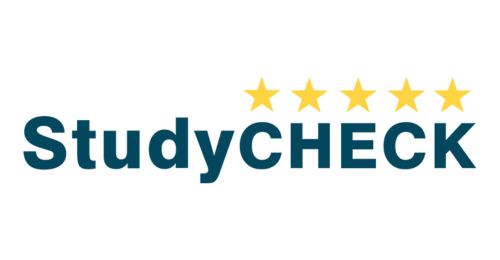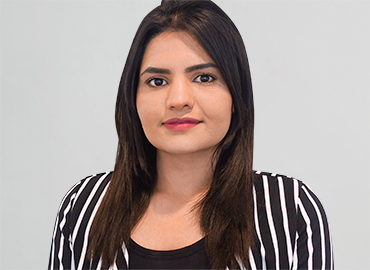This Website uses cookies to improve your visit on our website. More Info
Study Finder
- MBS QUICK FACTS:
- Nationally recognized since 1999
- February & September
- 18 or 24 Months
- English
- Book a consultation
Choosing the right Masters program in Business is crucial for your career, especially if you are looking for practical relevance, internationality, and specialization. Private universities such as Munich Business School, Fresenius University of Applied Sciences, and Business School Berlin offer different but ambitious programs. The three programs are briefly presented below.
This English-language degree program focuses on international orientation and practical relevance. Students can choose between different specializations such as International Marketing, Sustainable Business, or Innovation & Digital Business. An integrated semester abroad prepares students for leadership roles in global companies.
The program provides sound business knowledge with a focus on small and medium-sized enterprises and strategic corporate management. Practical projects, case studies, and close cooperation with industry create a strong link between theory and practice. The “3-day model” also allows students to easily combine their studies with their careers.
This practice-oriented program integrates company visits and projects to enable students to apply theoretical knowledge directly. A particular focus is placed on digitalization, including through the Software Engineering module.
The following special features play a role in one or more of the Masters in Business programs at Munich Business School, Fresenius University of Applied Sciences, and Business & Law School Berlin. They provide insights into the content, structure, and special features of the programs and illustrate how these programs promote practice-oriented learning, individual design options, and experience.
Below, we briefly explain what the concepts and terms mentioned in the Masters in Business Studies program mean.
Focus areas are thematic specializations that you can choose within your study program to specialize in specific areas such as marketing, finance, or entrepreneurship. In some programs, you can even choose more than one focus area.
Elective courses give you the opportunity to choose from various modules to suit your interests and career goals, allowing you to tailor your studies to your individual needs. In many degree programs, you can choose more than one elective course.
A study program with an international focus prepares you for the challenges and opportunities of global markets through intercultural content, languages, and often international experiences such as semesters abroad.
A Business Project is a practical project in which you work in teams to analyze real-world business problems and develop innovative solutions, often in collaboration with a partner company.
A stay abroad during your studies allows you to study at a partner university abroad for a certain period of time, participate in a project abroad, or gain international practical experience in order to strengthen your intercultural skills.
A mentoring program connects you with experienced experts or alumni who can provide valuable advice, career tips, and personal support.
A dual degree allows you to earn two master's degrees in just one period of study, often through an additional semester abroad at a partner university. This broadens both your professional qualifications and your international career opportunities.
This is an additional service that helps students learn or improve their language skills (especially in German) in order to prepare for an international or possible German career.
Networking events are events where you can make targeted contacts with companies, experts, or other students—often in a relaxed setting such as trade fairs, workshops, or evening events—to promote career opportunities.
A simulation game is a simulated business or project situation in which you make business decisions as part of a team. It combines theory with practice and promotes strategic thinking and teamwork.
The recognition and accreditation of each university is an important indicator of the quality and content of its degree programmes. Institutions such as the Federal Ministry of Education and Research, FIBAA, the German Council of Science and Humanities and renowned international accreditation organisations such as AMBA, AACSB and EQUIS assess academic excellence, practical orientation and international standards. Below we provide an overview of the most important accreditations for the three Business Administration Master's degree programmes.
| MBS | HS Fresenius | BSP | |
|---|---|---|---|
| German Ministry of Education | ✔️ | ✔️ | ✔️ |
| FIBAA | ✔️ | ❌ | ❌ |
| German Council of Science and Humanities | ✔️ | ✔️ | ✔️ |
| AMBA | ❌ | ❌ | ❌ |
| AACSB | ✔️ | ❌ | ❌ |
| EQUIS | ❌ | ❌ | ❌ |

Internationality is present at all three universities, but is anchored to varying degrees.
At Munich Business School, it is a central component: most of the course is taught in English, a semester abroad is compulsory and international collaborations characterise the programme.
Fresenius University of Applied Sciences integrates international aspects more optionally, for example through elective modules in English or the possibility of a semester abroad, but the focus remains more nationally orientated.
The Business & Law School Berlin offers international elements such as double degrees with partner universities and global project work, but sees internationality as a supplementary component, not as a central study objective.
In the following table, we have summarised the most important facts about the various Business Administration Master's degree programmes at the three universities MBS, HS Fresenius and BSP.
| Munich Business School | Hochschule Fresenius | Business & Law School Berlin | |
|---|---|---|---|
| Degree programm | Master International Business | Master Betriebswirtschaftslehre | Master Business Administration |
| Degree | Master of Arts | Master of Science | Master of Science |
| Duration | 3 semesters | 4 semesters | 4 semesters |
| Language of study | English | German | German or English |
| Programme start | Winter & summer semester | Winter & summer semester, depending on location | Winter & summer semester |
| Location | Munich | Munich, Cologne, Hamburg | Berlin |
| NC | No Numerus Clausus | No Numerus Clausus | Not specified |
| Recognition | State-recognised & accredited | State-recognised & accredited | State-recognised & accredited |
| Study requirements | Bachelor's degree: in an economics subject or if another BA degree, then a pre-Master's degree possible, English language skills proven by test | Bachelor's degree (with at least 180 CP. Of these, 60 CP should come from the field of economics and 10 CP from the field of quantitative methods. If you do not have enough credit points in these subject areas, you will need to pass an entrance test), English language skills at level B2 | Relevant professionally qualifying university degree, completed Bachelor's degree in economics (minimum of 60 ECTS in economics modules), German language skills at level C1 (not necessary for English degree programmes) |
| Scholarship opportunities? | Yes, up to EUR 4,000 funding | No | No |
| Thesis | Master's thesis in German or English | Master's thesis | Master's thesis |
| Special features | Focus areas selectable + elective courses, international focus, mentoring programme, business project, language courses, semester abroad, dual degree possible, pre-Master's possible, networking events | Focus areas, elective courses, language courses, networking events, annual career days, a large job portal and career advice, PIONEER LAB, options abroad | Stay abroad optional, double degree optional, start-up workshop, simulation game |
Do you want to find out what the difference is between a Master of Arts and a Master of Science?
For more information on this topic, please visit our dedicated page.
Difference between a M.A. and a M.Sc.The location that is best suited for the Business Administration Master's programme depends on your personal preferences and goals. The choice should be made based on budget, industry and lifestyle. Here is a brief overview of the three locations Munich (MBS & HS Fresenius), Cologne (HS Fresenius) and Berlin (BSP) for a Master's in Business Administration:
| Munich | Cologne | Berlin | |
|---|---|---|---|
| Economy | 10/10 | 7/10 | 6/10 |
| Internationality | 9/10 | 7/10 | 10/10 |
| Networking Opportunities | 10/10 | 5/10 | 9/10 |
| Infrastructure | 9/10 | 6/10 | 8/10 |
| Quality of Life | 9/10 | 8/10 | 6/10 |
| Cost of Living | 2/10 | 5/10 | 3/10 |
| Student Life | 8/10 | 8/10 | 9/10 |
| Nature | 10/10 | 8/10 | 7/10 |
| Recreational Possibilities | 10/10 | 9/10 | 10/10 |
| Culture | 9/10 | 8/10 | 8/10 |
| 86/100 | 70/100 | 78/100 |

Career prospects in business administration after the three degree programmes are good overall, but vary depending on the profile of the university and the focus of the programme:
MBS offers excellent entry-level opportunities in international management, consulting, marketing or finance. Thanks to its strong practical focus, international orientation and close connections to globally active companies, graduates often benefit from quick entry into management trainee programmes - especially in corporations or internationally active medium-sized companies.
Graduates of the Fresenius University of Applied Sciences have solid opportunities in traditional business fields such as controlling, human resources, sales or corporate development - especially in German SMEs. The practice-orientated structure and the good compatibility of studies and career often enable a direct transition to positions with project or specialist responsibility.
The BSP prepares students particularly well for positions in digital management, start-ups or innovation-driven companies. The focus on practical projects and entrepreneurial thinking makes graduates flexible, especially in dynamic, creative working environments - for example in business development or product management.
The experiences of alumni are a decisive factor in choosing the right Master's in Business programme. Reviews on platforms such as StudyCheck provide authentic insights into the quality of the degree programme, support and career opportunities from the perspective of former students. In the following, we compare the ratings of the three Master's in Business programmes at MBS, HS Fresenius and BSP in order to provide a solid basis for a decision.

These ratings come from the German rating portals StudyCHECK.de. The ratings are current as of May 26, 2025.
★★★★☆ 4,3
99% would recommend
★★★★☆ 4,5
100% would recommend
★★★☆☆ 3,8
91% would recommend
★★★☆☆ 3,7
100% would recommend
★★★★☆ 4,2
94% would recommend
★★★★☆ 4,1
100% would recommend
Munich is one of the most important business centres in Germany, with numerous corporations, hidden champions and consulting firms. The proximity to companies such as BMW, Allianz and Siemens makes it ideal for internships and jobs. The quality of life is high.
Challenges:
The cost of living, especially rent, is extremely high. Housing is scarce and expensive.
Cologne has a considerable economy focussing on media, trade and services. The city offers a good student life, a young scene and comparatively moderate rents.
Challenges:
Compared to Munich or Berlin, the density of companies in the consulting and finance sectors, among others, is somewhat lower.
Berlin is Germany's start-up hub and offers a creative, international environment with many innovative and digital companies. Life is slightly cheaper than in Munich or Hamburg.
Challenges:
The labour market is very heterogeneous - there are top opportunities, but often more in the start-up sector than in the classic corporate environment. The high number of students can make it difficult to get started.
Which business degree programme is the best depends largely on your goals. Programmes such as those at HSG or internationally at LSE or HEC Paris are highly regarded - but Munich Business School (MBS) also offers a solid Master's programme with a strong practical orientation and international focus, which can be very suitable depending on your career goals.
A Masters in Business makes sense if you want to deepen your knowledge, specialize or significantly improve your career opportunities in certain areas - especially in consulting, management or research.
There is no standardized NC for a Masters in Business; the requirements vary depending on the university. Many universities rely on aptitude tests in which other criteria such as subject knowledge, language skills or selection interviews are taken into account in addition to the final grade.
Private universities such as Munich Business School (MBS) also do not have an NC. Instead, selection is based on application documents and personal interviews.
The starting salary after a Masters in Business varies depending on the university, industry and region. On average, you can expect to earn around €46,500 to €51,230 gross per year. After three years of professional experience, over €100,000 per year is possible.
The Masters in Business can be demanding, especially because of the depth in statistics, finance and strategy - but with interest and discipline it is quite doable.

